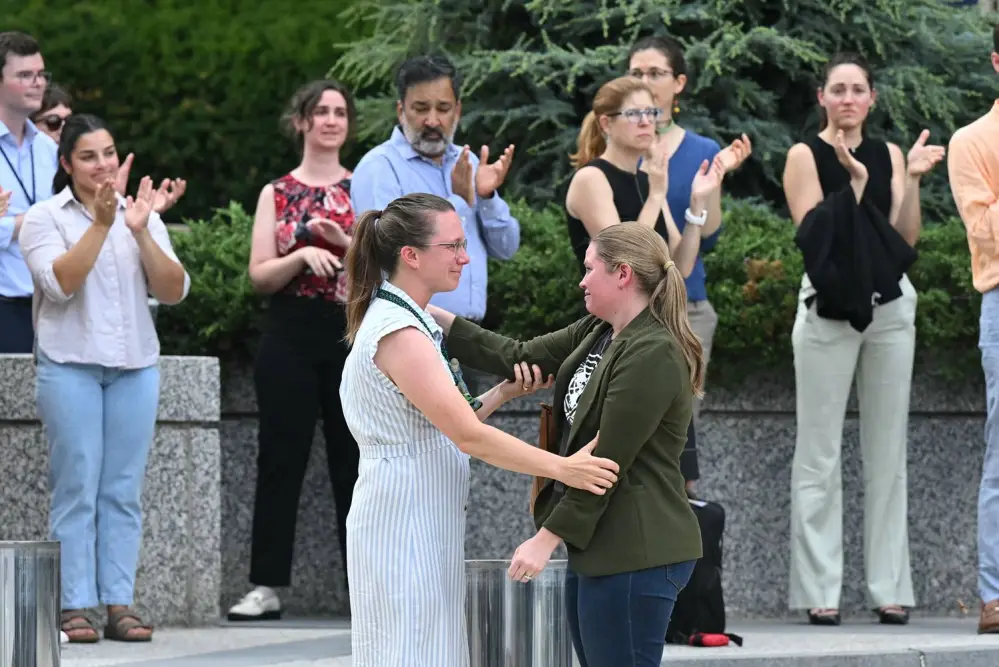Copyright Foreign Policy

A provision in the continuing funding resolution that the U.S. Congress is expected to shortly pass—ending the longest federal shutdown in U.S. history—has the union representing hundreds of diplomats laid off this summer hoping for a reprieve. In July, the U.S. State Department sent layoff notices to more than 1,300 employees, including 1,107 civil servants and 246 U.S.-based foreign service officers, as part of Secretary of State Marco Rubio’s dramatic reorganization of the department. However, because the July announcement didn’t immediately take place but rather kicked off a 120-day administrative leave period for the impacted foreign service officers, their permanent separation from the department wasn’t scheduled to go into effect until Nov. 10. But on that day, the same day that the text of the continuing resolution was widely released, a number of those impacted officers received notice from the State Department that their administrative leave was being extended “to correct some errors in the documentation,” said one U.S. diplomat who is involved with the American Foreign Service Association (AFSA), the union representing foreign service officers. The diplomat agreed to speak only on background for fear of government retaliation. The Senate-passed legislation, which the House of Representatives is slated to vote on Wednesday evening, includes language that would probit the Trump administration from using any of the appropriated funding to initiate or implement mass layoffs at any U.S. agency. As such, the AFSA contends that if the legislation passes and is signed into law, as is expected, then the July layoffs cannot be completed while the continuing resolution is in force—effectively granting the affected foreign service officers a temporary reprieve. “We understand that Congress intended for this language to apply to as many federal employees as possible, including those who received layoff notices from the State Department on July 11. Given that the department set the separation date for the July 11 layoffs as today, Nov. 10, those actions should not move forward,” the union said in a Monday Facebook post. The union has written to the State Department to press them to “immediately” halt the termination process while the continuing resolution is in effect. The State Department did not directly respond to a question on whether it would hold off on finalizing the layoffs for foreign service officers until the end of January, when the continuing resolution expires, but a spokesperson defended Rubio’s process in carrying out the terminations (known in government parlance as a “reduction in force,” or RIF). “Certain Foreign Service officers were notified in July of a Reduction In Force, in compliance with all legal requirements,” wrote the spokesperson, who was not authorized to be named. “The July RIFs, part of State’s historic reorganization, were the most complex and tailored in federal government history. These were thoughtfully designed to facilitate a more efficient, faster, and effective America First diplomacy.” The continuing resolution is slated to expire at the end of January, though, and with it any reprieve that it may bring. Still, even if it only buys the impacted foreign service officers a few more months before their layoffs go into effect, that extra salary and health benefits are very meaningful, said the diplomat. “That is several more months of getting health insurance for RIF’d officers with family members with major medical conditions … people facing the potential of foreclosure, some people who are really dealing with some serious financial implications from these RIFs.” It was not immediately clear what the impact of the continuing resolution would be on the more than 1,100 civil service employees who were subject to Rubio’s July layoffs, but it is likely that the congressional reprieve does not apply to them. That’s because the administrative leave that comes with a RIF for civil service employees is much shorter, at least 60 days, so their permanent separation would have been enacted in September.



